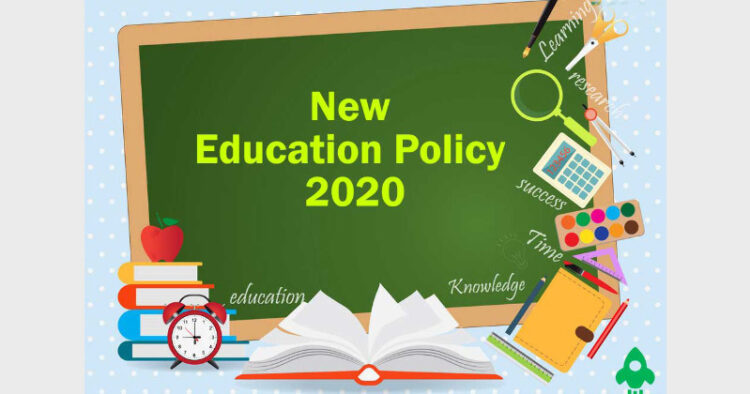After almost four years of the rigorous consultation process, including over two lakh suggestions, the Union Cabinet approved the National Education Policy 2020. After a year of acceptance of the crucial report, this national project is in implementation mode this year. At this critical juncture, it is essential to review where we are as far as the implementation process and possible challenges on the way forward. When we are still grappling with the Covid-19 pandemic and millions of students are set to explore new academic courses to shape their future, stock taking can be an imperative exercise.
The NEP 2020 has been conceived by changing the content and contours of education in Bharat. It will be slightly different with New Curricular and Pedagogical Structure (5+3+3+4), focusing on pre-primary education from three to six years of age. There is also an aim of ensuring Universal Access at all levels of schooling. The emphasis on promoting multilingualism and Bharatiya languages at the school level, with the preferable medium of instruction to be mother tongue/ local language, is a significant policy recommendation. A new assessment centre to evaluate the students’ skills and knowledge based on the defined holistic parameters; exposure to vocational education; multidisciplinary education with more flexibility in terms of courses and entry or exit option and thrust on research and innovation through the constitution of a foundation for the promotion are other essential characteristics of the policy framework.
The Human Resource Development Ministry is now the education ministry, and it has identified various steps to be completed for the successful implementation of the policy. The Shikshak Parv that deliberated on numerous themes with the educationists further prepared the people working on the ground. In a Conference of Governors, besides the chancellors of the state Universities, Lt. Governors, Vice-Chancellors and education ministers of states also participated, ensuring that the federal mechanisms are in place to execute the policy. The committees are set up to develop the implementation plan, and various bodies are assigned with the respective tasks with an inbuilt review mechanism. Though the Covid-19 situation has created some impediments in the implementation process, it has also provided new opportunities to test the technological infrastructure and skills to realise the set objectives. The budgetary allocation to augment research right from the graduation level and substantial monetary support from the international bodies like World Bank are significant indicators of the intent of the Government.
On the occasion of the one-year completion of the beginning of the ambitious reforms, Prime Minister Modi not only addressed all the stakeholders across the country but launched multiple initiatives for the education sector. He rightly mentioned that seventy-five years of Bharat’s independence is the perfect occasion to focus on this path-breaking reform process of the man making for nation-building as envisaged by Swami Vivekananda.
The future course is not easy. For the last almost two hundred years, our education has been structurally and substance-wise colonial. Despite recommendations from various commissions, our education is still not tuned to our civilisational ethos and social needs. There are many vested interests in continuing with the existing system that thrives on monopolies and blind imitation of the foreign models. Transformation of the structures, content and evaluation process is a tedious and long-term exercise that requires a substantial change in the mindset of all the stakeholders, including parents and students. While opting for the academic courses, a comprehensive but localised counselling process needs to be initiated to transform education through NEP 2020, genuinely a national reconstruction process.














Comments